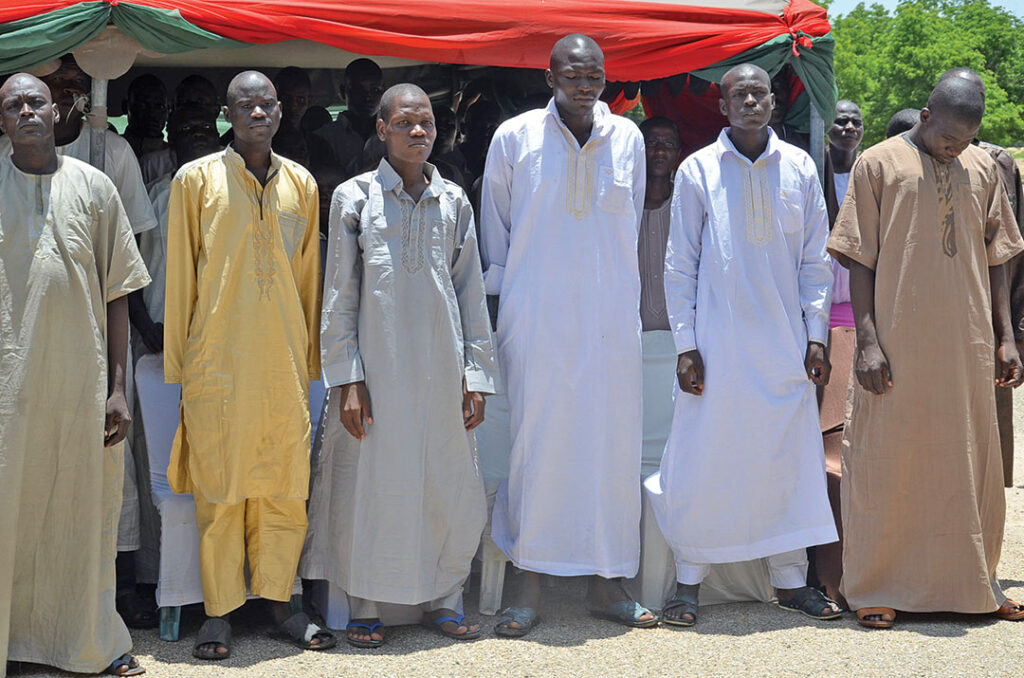ADF STAFF
Nigeria is making progress in deradicalizing former Boko Haram fighters.
The plan known as Operation Safe Corridor was unveiled in 2015 at a Nigerian National Security Council meeting when the government offered former Boko Haram members a chance at rehabilitation and reintegration.
German news outlet Deutsche Welle (DW.com) visited the Bulumkutu Rehabilitation Centre in Maiduguri where 151 former Boko Haram fighters were being handed over to the state government in August 2019. Deradicalization includes psychotherapy, interaction with imams who discredit extremist preaching and other counseling.
The coordinator of Operation Safe Corridor, Brig. Gen. Bamidele Mathew Shafa, told DW.com he is hopeful the program is making a difference.
“A lot of ground [has been covered], and we hope these boys will be accepted,” he said. “As a matter of fact, the reports we are getting on the first set of people we handed over to the state are positive. We have not received any report of maltreatment in the various communities that they are in. I think this is something we need to sustain.”
But some people in Borno State told DW.com they are not ready to accept ex-fighters. “Boko Haram killed my husband while he was praying inside the mosque; two of my brothers were slaughtered,” said Hauwa Adamu, a victim of the Boko Haram insurgency in Borno State. “They should find a place to keep [the former fighters], but not in our society, please.”
Bulama Bukarti, a Nigerian barrister and expert on peace, security and Islamic extremism at SOAS University of London, said a key to the success of the deradicalization program will be effectively tracking graduates and seeing what has worked and what has not. Still, he said, he firmly believes in the potential of the deradicalization process.
“If we believe that people can be taught to hate, we should also believe that people can be taught to love,” he said.

